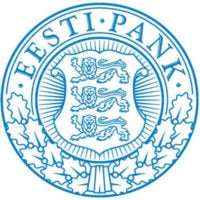Eesti Pank, the central bank of Estonia, has tested a blockchain-powered technical solution for the use of a digital euro central bank digital currency (CBDC) that it says is capable of handling more than 300,000 simultaneous payments a second and enables payees to receive a payment in less than two seconds.

“The experiment established that a novel blockchain-based solution could in theory support almost unlimited numbers of payments being processed at the same time with a very large money supply and with a lower carbon footprint than the card payment system,” Eesti Pank says.
“The blockchain-based solution would also permit a good balance between privacy and the need to meet anti-money laundering requirements.”
The experiment tested a technical solution built on the blockchain technology used in Estonia’s e-state system. It looked specifically at how that technology “could perform in terms of the number of payments and money-holders and its energy costs, and how digital identities could be linked and privacy ensured”.
“The experiment overcame some of the earlier bottlenecks in blockchain technology such as low performance and high energy costs,” Eesti Pank adds.
“It showed that the innovative digital euro technology based on the blockchain is highly scalable, meaning that the number of payments made with the digital euro can easily be increased if needed.
“This technology does not set any essential limits on the size of the money supply. The system is able to handle the entire supply of euros in circulation and more, and there are no limits on the number of money-holders or on the number of payments made simultaneously.”
Eesti Pank tested the solution in partnership with the central banks of Spain, Germany, Italy, Greece, Ireland, Latvia and the Netherlands using digital money payments between people with digital identities in the three Baltic states and Spain.
The experiment will provide information to the European Central Bank’s ongoing digital euro project, which entered a two-year investigation phase earlier this month.
Next: Visit the NFCW Expo to find new suppliers and solutions